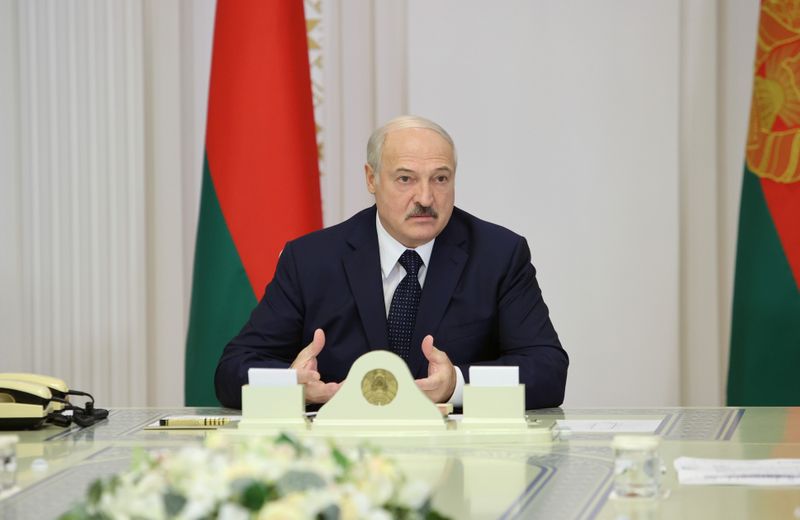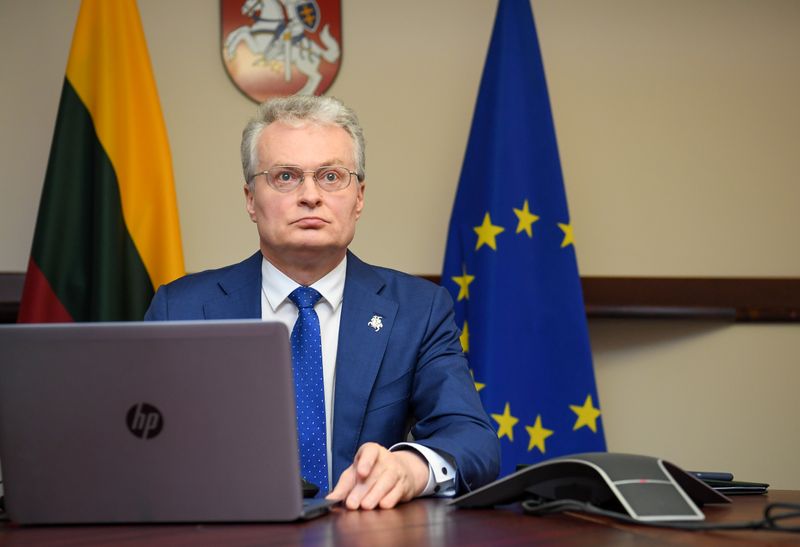VILNIUS (Reuters) - Lithuania, Latvia and Estonia imposed travel bans on President Alexander Lukashenko and 29 other Belarusian officials on Monday, jumping into action to impose sanctions before the rest of the EU.
The three Baltic states have led calls for the West to take firmer action against Lukashenko, who is accused by opponents and the West of rigging an election to prolong his 26-year rule.
The sanctions are aimed at officials the three Baltic states accuse of vote rigging and playing a role in violence against protesters since the Aug. 9 election. Lukashenko's inclusion in the lists sends a message to other European countries which have been reluctant to back measures against him personally.
Lukashenko, an ally of Moscow, denies electoral fraud and has said the protesters are backed from abroad.
"We said that we need peaceful dialogue and agreement between the regime and society, but we see that the regime is not ready for that," Lithuanian President Gitanas Nauseda said. "We see that we need to move forward and to show an example to other countries."
The European Union has been working on its own list of individuals in Belarus to target with similar sanctions, but Western countries have mostly been cautious, wary of provoking an intervention from Russia.
The three small Baltic states are in the EU and Lithuania and Latvia border Belarus. Lithuania has been hosting opposition candidate Sviatlana Tsikhanouskaya, who fled there after the election her supporters say she won.
Tsikhanouskaya will speak to the U.N. Security Council on Friday at Estonia's invitation, her spokesman said.
HUGE DEMONSTRATIONS
Tens of thousands of protesters again took to the streets in central Minsk on Sunday, seeking to keep up pressure on Lukashenko to resign. At least 140 people were detained, Russia's RIA news agency reported, citing the Belarusian Interior Ministry.
Lukashenko threatened on Friday to cut off European transit routes across his country in retaliation against any sanctions.
Goods from landlocked Belarus account for almost a third of Lithuania's rail traffic and port volume. Belarus is also a major overland route for European goods bound for Russia, and carries pipelines used to ship Russian oil to Europe.
President Vladimir Putin has invited Lukashenko to Moscow, a sign of Kremlin support.
Last week, the Kremlin announced it had set up a reserve force able to intervene in Belarus, though it did not see a need for such intervention so far. Kremlin spokesman Dmitry Peskov repeated on Monday that Moscow still sees no need for action.

The German foreign ministry said it had summoned the Belarusian ambassador on Monday in response to the detention of foreign journalists in Belarus.
